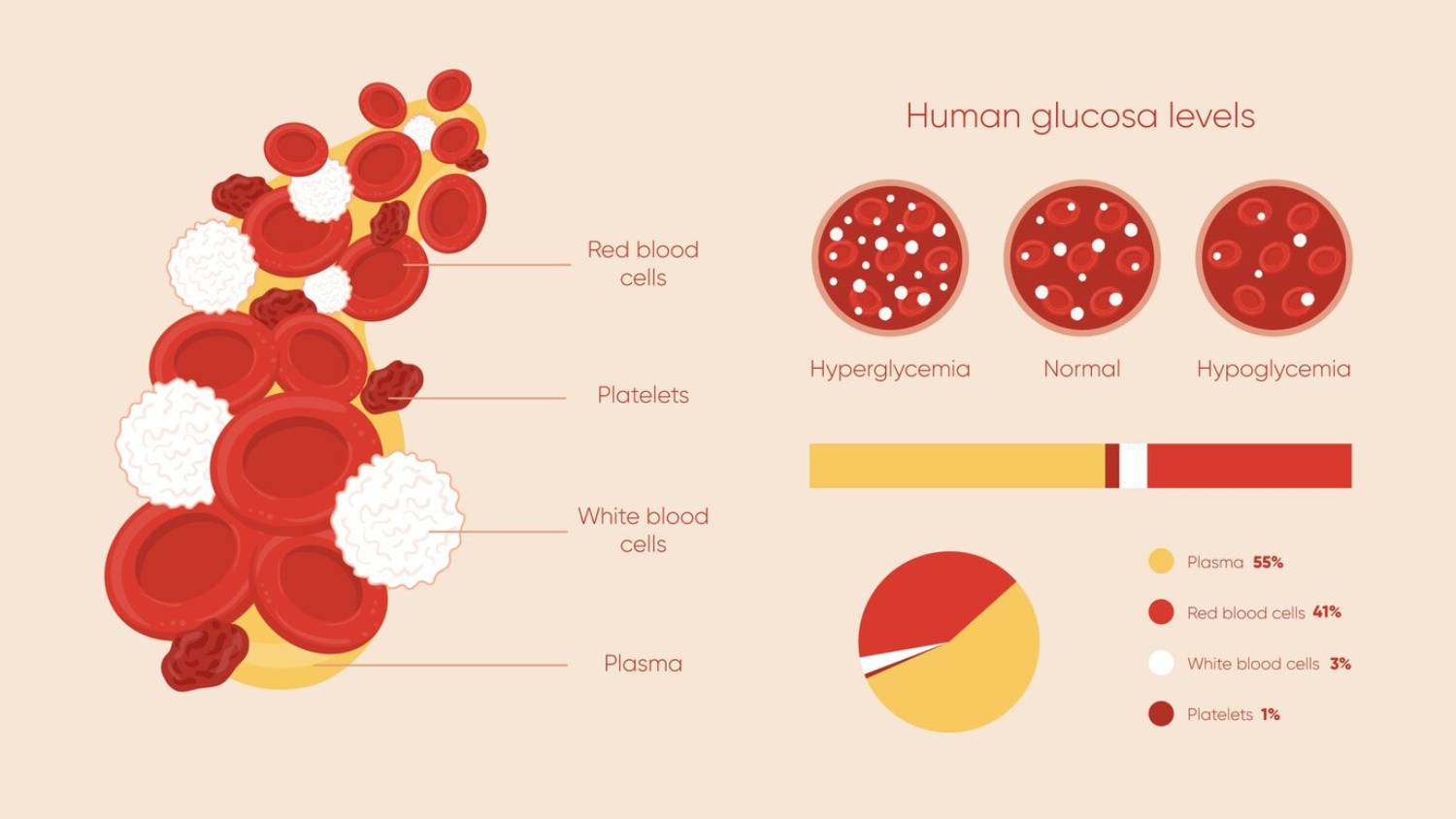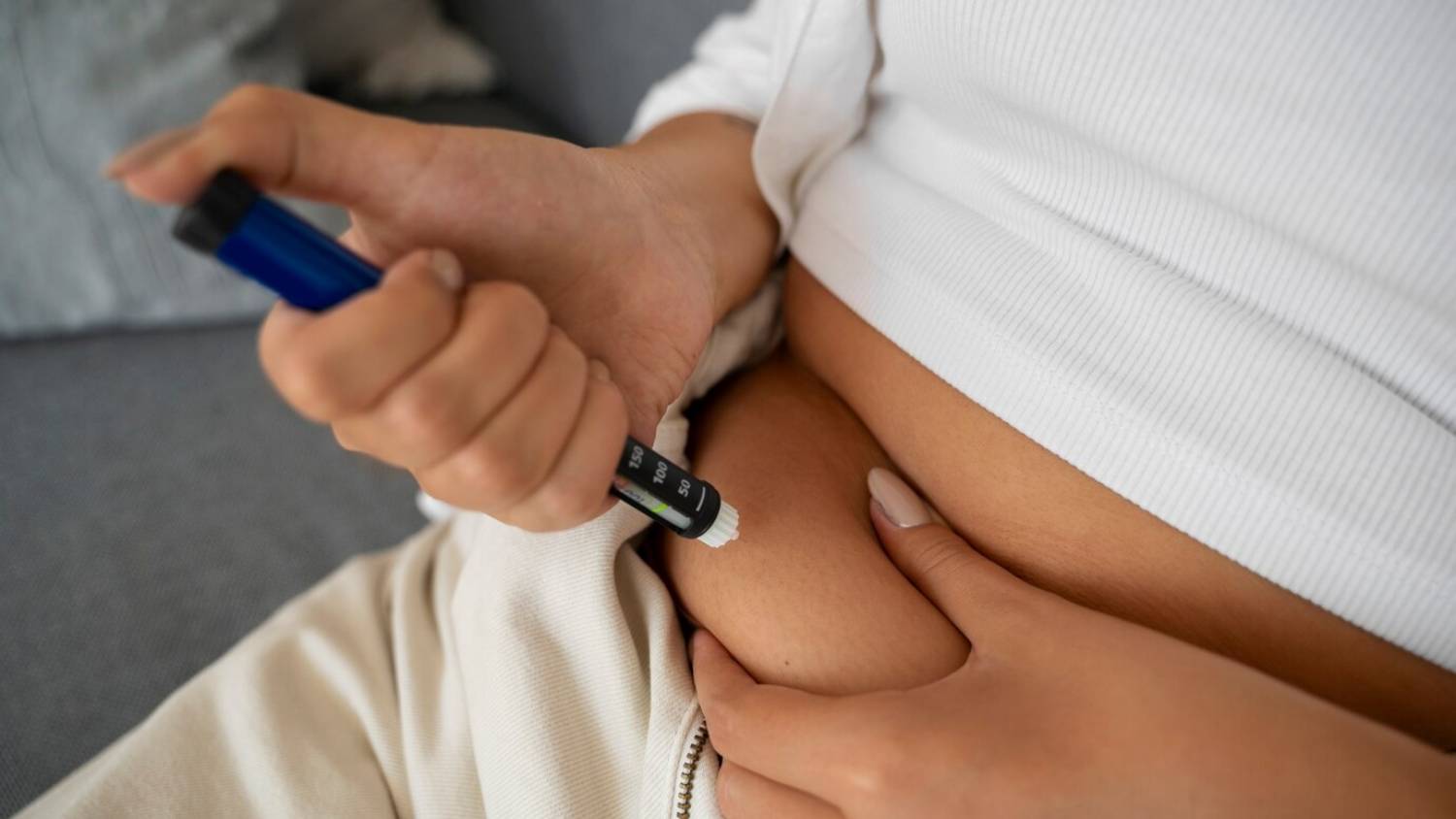Toll Free Helpline Number
18002101616
Book on Whatsapp
9892101616
How To Keep Diabetes In Check!
Diabetes
Tue Oct 31 2023
Diabetes is a chronic condition that affects millions of people worldwide. It is characterized by high blood sugar levels due to either insufficient insulin production or the body's inability to utilize insulin effectively. While diabetes cannot be cured, it can be managed with proper medical care and lifestyle changes. Regular diabetes testing is essential for early detection and effective management. In this blog, we will explore the different types of diabetes tests and discuss how to keep diabetes in check or prevent it./
Types of Diabetes Tests:
1. Fasting Plasma Glucose Test (FPG):
This test measures your blood glucose level after fasting for at least eight hours. A reading above 126 milligrams per deciliter (mg/dL) indicates diabetes.
2. Oral Glucose Tolerance Test (OGTT):
After fasting for at least eight hours, you consume a sugary drink and have your blood glucose level tested two hours later. A reading above 200 mg/dL indicates diabetes.
3. Hemoglobin A1c Test (HbA1c test):
This test measures your average blood glucose levels over the past two to three months. A reading above 6.5 percent indicates diabetes.
How to keep diabetes in check:
1. Diet for diabetes:
Adopting a well-balanced diet is crucial for managing diabetes. Focus on consuming a variety of fruits, vegetables, whole grains, lean proteins, and healthy fats. Limit your intake of sugary foods, processed snacks, and beverages high in added sugars.
2. Exercise for diabetes:
Engaging in regular physical activity helps how to control diabetes or blood sugar levels and improves insulin sensitivity. Aim for at least 150 minutes of moderate-intensity aerobic exercise, such as brisk walking or cycling, per week. Incorporate strength training exercises to build muscle mass and enhance glucose metabolism.
3. Medication for diabetes:
If required, following the prescribed medication regimen and insulin therapy is essential for diabetes management. Consult your healthcare provider to ensure proper dosage and timing.
4. Blood Sugar Monitoring:
Regularly monitor your blood sugar levels using a glucometer to track how your body responds to different foods, activities, and medications. This information will help you make the necessary adjustments to maintain stable blood sugar levels.
5. Stress Management:
Chronic stress can affect blood sugar levels, so adopting effective stress management techniques like meditation, deep breathing exercises, yoga, or engaging in hobbies can be beneficial for diabetes management.
How to prevent diabetes:
While some risk factors for diabetes, such as family history and age, cannot be changed, certain lifestyle modifications can significantly reduce the risk:
1. Healthy Weight:
Maintain a healthy weight through a balanced diet and regular exercise. Losing even a small amount of weight, such as 5-10% of your body weight, can make a significant difference in reducing the risk of developing diabetes.
2. Balanced Diet:
Adopt a diet rich in whole grains, fruits, vegetables, lean proteins, and healthy fats while limiting processed foods and sugary beverages.
3. Active Lifestyle:
Engage in regular physical activity to improve insulin sensitivity and overall health. Aim for at least 150 minutes of moderate-intensity exercise per week.
4. Avoid Tobacco and Excessive Alcohol:
Smoking and excessive alcohol consumption can increase the risk of developing diabetes. Quit smoking and limit alcohol intake to reduce the risk.
Regular visits to healthcare professionals for routine screenings can help identify pre-diabetes conditions and enable early intervention.
Diabetes test is crucial for early detection and effective management of the disease. By following a healthy lifestyle encompassing a balanced diet, regular exercise, stress management, and proper medication, individuals with diabetes can control their blood sugar levels and minimise complications. For those aiming to prevent diabetes, adopting a healthy lifestyle, maintaining a proper weight, and regular check-ups are essential. Remember, early detection, proactive management, and healthy living are the key pillars to combating diabetes and maintaining overall well-being.
Manipal TRUtest provides comprehensive diagnostic services with assured quality, accuracy and trust backed by 70 years of Manipal legacy. Get Home Sample Collection and a well-qualified phlebotomist shall visit you at the comfort of your home. Test Reports are available to be downloaded online within 24 hours.
Related Tests
Related Packages
Related Blogs

Diabetes
Importance of Blood Sugar Test for Health Monitoring
Blood sugar tests are critical instruments in healthcare, providing crucial information about a person's health, particularly for illnesses such as diabetes. Regular blood sugar monitoring can help discover irregularities early, treat existing diseases, and avoid major health complications. This simple but significant test provides critical information on the extent to which the body processes glucose, the main source of power for our cells. Understanding the significance of blood glucose testing is critical to achieving overall wellness.
Early Detection of Diabetes
One of the most important reasons for a test for blood sugar is to detect diabetes or prediabetes early on. Diabetes is a disorder in which the body fails to efficiently regulate blood sugar levels, either due to inadequate production of insulin (Type 1) or insulin resistance (Type 2). Healthcare providers can detect signals of high glucose levels even before symptoms appear. Prediabetes is a condition in which blood sugar levels are above normal but are not yet sufficiently elevated to be classed as diabetes. Early detection of prediabetes enables modifications to their lives, such as dietary changes and more physical activity, that can help avoid the development of diabetes of the type 2 variety.
Monitoring Existing Conditions
Individuals who have already been diagnosed with diabetes require regular blood sugar tests to monitor and manage the illness. Consistent testing allows you to see how well your treatment strategy is working and whether you need to change your meds or lifestyle. Maintaining blood sugar levels within a target range helps lower the risk of consequences associated with poorly managed diabetes, such as heart disease, harm to the kidneys, nerve damage, and eye issues. Blood sugar monitoring also allows people to make real-time choices regarding their food, activity, and medicine. For example, if blood sugar levels are abnormally high or low, a person may implement corrective action such as eating carbs, altering dosages of medicines, or participating in physical activity.
Preventing Complications
Many problems can arise from uncontrolled blood sugar levels. For example, hyperglycemia, or persistently elevated blood sugar, can harm blood vessels and result in kidney failure, stroke, and cardiovascular disease. Conversely, hypoglycemia, or extremely low blood sugar, is a potentially fatal condition that can result in disorientation, lightheadedness, and even unconsciousness. By enabling people to detect changes in their blood sugar levels early and take the appropriate steps to avoid more difficulties, routine blood sugar testing helps avoid severe hyperglycemia and hypoglycemia. This is especially crucial for people who have an extended family history of diabetes, obesity, high blood pressure, or other conditions that put them at high risk of problems
Promoting Better Lifestyle Choices
Additionally, blood sugar checks motivate people to lead healthier lives. The test findings give quick insight into how blood sugar levels are impacted by medication adherence, exercise habits, and food choices. People may be encouraged by this feedback loop to follow their treatment regimens, eat better, and exercise frequently. For example, a person may be motivated to change their eating habits if they observe a rise in blood sugar following the consumption of sugary foods. Regular testing can also help people make better decisions about their physical activity by educating them about how various forms of exercise impact their blood sugar.
Conclusion
A crucial component of health monitoring is blood sugar testing, particularly for those who have diabetes or are at risk of developing it. It guarantees efficient treatment of diabetes, aids in its early detection, and averts long-term consequences. Frequent blood sugar checks yield useful information that can direct prescription modifications, lifestyle changes, and general health enhancements. People can improve their overall standard of life and keep more power over their health by integrating blood sugar levels monitoring into their everyday routine

Diabetes
Understanding Normal HbA1c Levels
The equation mentions that HBA1c levels will characteristically assess a person based on average blood glucose over the past 4 to 6 weeks, indicating the importance of haemoglobin A1c as a key indicator. This also provides doctors with information about a person's long-term glucose control that is involved in the management of diabetes. They interpret properly to know what count constitutes an appropriate HBA1c, to be able to allow for normalcy of an individual without problems and to find strategies to ensure that diseases such as diabetes are managed well needful in the aid of diet.
What is HbA1c?
It is a protein that is present in red blood cells and helps in the transport of oxygen in the body. When glucose binds to haemoglobin due to elevated blood sugar levels, it forms glycated haemoglobin, commonly referred to as HbA1c. A blood test called HbA1c, or glycated haemoglobin, measures the average insulin levels in the blood circulation from two to three months.
Normal HbA1c Levels
Normal HbA1c results vary from laboratory to laboratory and from healthcare facility to healthcare facility. Thus prediabetes ranges from 5.7% to 6.4%. Prediabetes predominantly leads to type 2 diabetes or will cause stroke and coronary heart disease. Diabetes is diagnosed when HbA1c is found to be equal to or greater than 6.5%. This suggests that the individual is suffering from hyperglycemia for longer durations and hence requires immediate intervention to address the possibility of assorted complications, including but not limited to those associated with renal disease, cardiovascular disease, nerve damage, and eye problems.
Importance of HbA1c Testing
- Diagnosing Diabetes: The main technique that is used by themedical profeesional to identify diabetes is HbA1c testing. The blood glucose reading mainly depends on the activity, stress, and daily food consumption that will provide an accurate picture of the blood glucose.
- Monitoring Diabetes Management: The regular testing of the HbA1c for the diabetes helps in evaluating the effectiveness in the long term and managing the blood sugar. It is most crucial to monitor the diabetes.
- Frequent HbA1c testing for diabetics helps to evaluate the effectiveness of long-term blood sugar management. It is most crucial for the modification of the treatment that also includes the adjustment of dietary and the change in the lifestyle.
Factors Affecting HbA1c Levels
HbA1c levels can be influenced by a number of circumstances, which could cause the findings to be misinterpreted:
Anaemia and Blood diseases: The precision of HbA1c measurements can be impacted by conditions such as anaemia, and hemoglobinopathies. The tests, such as fructosamine or continuous glucose monitoring, may be employed in these situations.
Age and Gender: The HbA1c levels of the women and men are slightly different. The blood glucose is comparable to the younger behavior of people.
Lifestyle and Diet: The lifestyle of the people and poor eating habit are the major that contributes to elevated the HbA1 level . It is control by the certain lifestyle.
Chronic Illnesses: The Blood sugar parameter and levels of the HbA1c can be impacted by other chronic illnesses, like renal disease.
Managing HbA1c Levels
To control the HbA1c level should manage the wellbeing and health . It control the level that are greatly lower risk of the problem for the diabetes patient and pre diabetics. There are following suggestion to control the blood sugur level:
- Healthy Eating: The person should healthy food to maintain the blood sugar level followed by balanced diet full of fruits, vegeiess , lean meat and the healthy fats. There should limitation of processed food and to many carbohydrates.
- Exercise: Exercise helps lowers the blood sugar levels by improving the body's ability to use insulin
- Medication : to control the blood sugar level should maintain the healthy blood sugur level. The people suffering from diabetic must take insulin and proper medications
Conclusion
Maintaining optimum health and avoiding long-term consequences linked to diabetes require an understanding of typical HbA1c values. Maintaining blood sugar management can be facilitated by regular HbA1c testing and good lifestyle choices. Early intervention, such as lifestyle modifications and routine testing, can assist people at risk of diabetes postpone or avoid the start of the disease. Blood sugar levels can be efficiently managed while leading an active, healthy life by keeping an eye on HbA1c levels along with preventative measures.

Diabetes
The Importance of Diabetes Test: Causes, Symptoms, and Treatment
Diabetes is a long-term illness that will impair the body's capacity to control blood sugar, or glucose, which fallout in high blood glucose levels. If it is untreated then it may have a major health issue. Diabetes testing is essential for early identification, and treatment, and will avert complications of health. In this article are examined that diabetes testing is the root cause, symptoms and treatment
Type Diabetes:
Type 1 Diabetes:- It is an autoimmune disease in which the body's immune system targets and kills the pancreatic cells that produce insulin. As a result, the slight to no insulin is produced. Although the precise aetiology is uncertain, environmental factors like viral infections and genetics may be involved. Although it can be the reason to strike at any age of human, type 1 diabetes is usually found first in the children or young adults.
Type 2 Diabetes:- This situation is brought on by the body's confrontation to insulin or by the pancreas' inability to adequately and produce enough insulin to control the blood sugar levels. It is frequently associated with the lifestyle and the variables such as heredity, non-hygienic food, obesity, and physical inactivity.
Diabetes during pregnancy:
Diabetes that develops during pregnancy will primarily go away after the baby is born. In the future, pregnant women with gestational diabetes are more likely to develop Type 2 diabetes. Changes in hormones will mostly impact how the body uses insulin.
Symptoms of Diabetes
Diabetes symptoms may not be immediately apparent since they develop gradually. The three most significant indicators of increased blood sugar are frequent urination, obesity, and health problems.
Importance of Diabetes Testing
To avoid major problems like heart disease, kidney failure, nerve damage, and visual loss, diabetes must be detected early. Diabetes can be detected by testing before serious harm is done. The following are the most often used tests to diagnose diabetes:
- Quick Blood Sugar Check: Blood glucose levels are measured by this test following an overnight fast. Diabetes is suggested by a reading of 126 mg/dL or above.
- Test for hemoglobin A1c: The test gives the result of the average blood sugar report. Diabetes is indicated by an A1c reading of 6.5% or greater.
- Random Blood Sugar Test: Blood sugar can be measured using this test at any time of day. Diabetes is suggested by an outcome of 180 mg/dL or greater, particularly if symptoms are present.
Medications:
- Insulin: To help control blood sugar, people with Type 1 diabetes and some with Type 2 diabetes also need insulin therapy.
- Oral Drugs: Drugs like as metformin assist regulate blood sugar levels by either enhancing the body's reaction to insulin or by lowering the liver's production of glucose.
- Other Injectable Drugs: By lowering blood sugar levels or promoting insulin production, other injectable treatments for Type 2 diabetes may aid in blood sugar regulation.
Conclusion
From the above mentioned in the article it has been concluded that an essential part of controlling and avoiding the complications of diabetes is diabetes testing. Regular testing will help to detect diabetes early, and also allow people to control blood sugar levels and lower their chance of developing major health problems. A combination of medicine, lifestyle modifications, and regular monitoring can that will help people with diabetes live healthy lives. If the person has diabetes symptoms or is at risk, discuss the right tests and treatment choices with the healthcare professional
